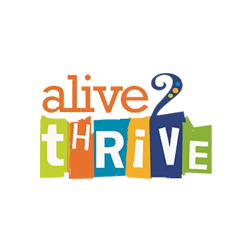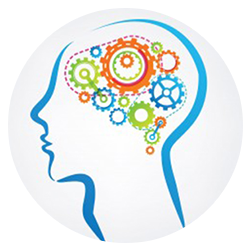

Knowing Me
Helping You Understand Yourself Better
The lessons in the KNOWING ME module seek to empower you with the ability to self-reflect upon “what it means to be you.”
Each video lesson and its activities are designed so that you can better understand yourself and work to become the individual you want to be. It is important that you take each lesson’s activities to heart by being honest with your answers. You are not being graded so the only person you would be cheating is yourself. This is an opportunity to find practical ways to improve yourself and fulfill your potential.
The video lessons come with a number of activities or public and private discussion questions. Think critically about how you feel and the thoughts they inspire. By engaging in honest and open discussion in your classroom or with your mentor, you are not only helping yourself but helping those around you.
1- Who Do You THINK You Are?
Learning Objective: You will better understand various options for defining yourself in our culture, and the consequences of each.
How do you define yourself? Who do you think you are? Where does your value come from? Is it a good idea to define yourself by what you have, or what you do, or the opinion of others? And if not, how would YOU prefer to answer this important question? “I am valuable because…”
This lesson will guide you in exploring how you define your own self-worth. What you value about yourself and about others now will influence the type of person you will eventually become.
After watching the video use the lesson worksheet below to answer the discussion questions.
2- Imagine the Ideal You
Learning Objective: You will identify your most desirable behaviors and attitudes.
Have you ever imagined the ideal vacation or the ideal summer day? Perhaps you’ve imagined an ideal performance in your sport or the perfect part-time job. They say one of the most significant differences between humans and all the animals of the kingdom is our ability to imagine – to see in the theater of our mind what could be, not just what is.
For this lesson, you will use the magic bead principle to identify your most desirable behaviors and attitudes. After viewing the video complete the magic bead activity as described in the worksheet below followed by completing the lesson’s discussion questions.
3- Another Kind of Smart
Learning Objective: You will create a personal plan for improving your personal Emotional Quotient (EQ).
If IQ stands for Intelligence Quotient, what does EQ stand for? The answer? – Emotional Quotient. Your EQ refers to how smart you are with your emotions and how well you understand the emotions of others. It turns out that high EQ is a better predictor of success than IQ.
This lesson will help you create a personal plan for improving your personal emotional quotient (EQ). By improving your EQ, you will work to close the gap between your current self and your IDEAL self by managing your emotions. After watching the video, click on the Worksheet link below to download the lesson activities
The worksheet (link below) will provide you with tips and activities for enhancing your EQ.
4- Two Faces of Character
Learning Objective: You will learn to prioritize your most desired character traits and chart a course for improvement.
We don’t have to look very far to find examples of good or poor character traits. We see it in sports, business, and in school. Examples of good character show up in our heroes, and sometimes poor character still ends up holding a trophy at the end of a game. It can be confusing.
Character has two faces -- some character strengths face inward toward self, and some character strengths face outward toward others. The video lesson offers a list of both types. You will explore which type of characteristics you possess. How many of these characteristics are about you or your relationship with others? The video and worksheet will provide you with strategies on how to bolster your character.
5- Find Your Swagger
Learning Objective: You will learn the nature of self-confidence and its source and explore the difference between legitimate swagger and phony arrogance.
Have you noticed that some kids seem to have it all together? They look and sound so sure of themselves while you feel like a pair of flip-flops in a world full of Nikes. Well, there’s actually a formula for swagger.
High self-esteem + High self-confidence = Major Swagger.
This lesson will explore the difference between legitimate Swagger and phony arrogance. Swagger is not about arrogance, but the real genuine kind of poise that’s cool without trying to be cool. It’s a combination of strong self-esteem, accepting your strengths and weaknesses, and believing in the skills you have.
6- What Do You Expect?
Learning Objective: You will learn the power of expectations and how to identify personal tendencies.
You sit down to take a test in school. What do you expect the next ten minutes to be like; Satisfying or Crash & Burn? You meet a friend to talk about a disagreement you had with each other over lunch. What do you expect from the conversation; Resolution or more hostility?
Some people are in the habit of expecting good things and some people always expect the worse. Which one are you?
This lesson will help you understand the power of expectations and learn how to identify your personal tendencies. It will explain how what you expect from a given situation has a lot to do with what happens next.
7- Choose Optimism
Learning Objective: You will identify optimistic and pessimistic responses and learn how to benefit from optimistic choices.
So which one are you; A pessimist or an optimist? Or are you one of those people who think it doesn’t really matter?
Discussion Activity:
The worksheet asks that you record your optimistic and pessimistic thoughts about mistakes you have made in the past.
- What are some of your pessimistic explanations and what are some of your optimistic explanations when you make a mistake? What do these explanation sound like?
- Choose an area of your life in which you are often pessimistic; What does your pessimistic self usually say about this topic and what does your optimistic self usually say?
8- Win the Biggest Game
Learning Objective: We’ve all heard about the BIG game… or The BIG test… or The BIG college application, …the one that will define our season, our semester, or our future. If you win the BIG ONE you’re hot stuff, and if you lose, there is only disappointment, and the phrase, “There’s always next time.”
But what if I told you the BIG game is actually a small event within an even BIGGER game that’s going on? What if the BIGGEST game is the one that really deserves your attention? In fact, it’s so critical because there is no “next time”? You only get one shot at this BIGGEST game. The Biggest game is the game of LIFE, and here’s the deal: It lasts longer, is more important, and has more opponents than normal competition.
9- Avoiding Self-Deception
Learning Objective: You will better understand personal denial and identify examples from your life.
This video lesson explains how deception is common, but self-deception is seldom recognized. Have you ever been upset with a situation involving a friend, and then discover YOU caused the problem without realizing it? Everyone likes to be “Right” rather than “Wrong”. The problem is that we place such a premium on being “right” that we lose the humility to consider the possibility of being “wrong!”
The discussion questions in the lesson worksheet (below) are designed to help us think of situations in which we played a part in a misunderstanding or conflict, and to honestly admit our role in whatever happened.
How to use santorofoundation.org
This website is a free resource of material to help improve your personal life skills, or emotional intelligence. The material on this website ranges from individual “sayings” to a full curriculum program called Alive2Thrive. To help you become your best self, please review all this site has to offer. It is important you pass this site along to others so they can be the best they can be and by doing so we will build the best society.
